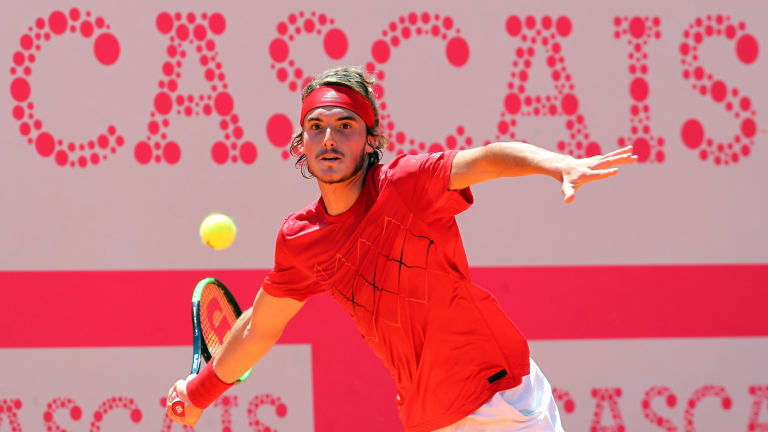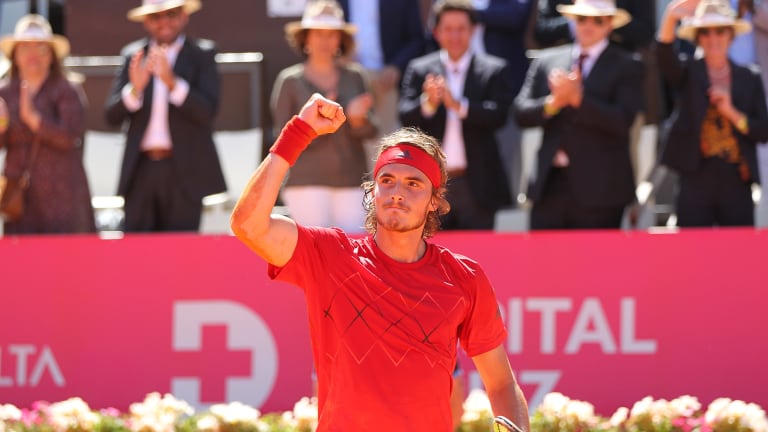Fresh off his run to the final of the Barcelona Open, Stefanos Tsitsipas—an estimable 19-year-old from Greece, and a swiftly ascending tennis player with a clear view of who he is, what he wants and where he might be going—told me how much he values his heritage.
“Traveling around the world 30 weeks per year is the best way to represent your country, and I feel very proud to be representing the blue and white colors of my flag,” says Tsitsipas. “I really feel happy that I can do well and my country can take credit as well for that. I am just trying to do my best and remind people that anybody can become a good tennis player, no matter where he comes from.”
How have his fellow Greek citizens reacted to his sparkling run in Spain (ended swiftly by Rafael Nadal), and his steady run of success?
“It went kind of viral in Greece,” Tsitsipas answered. “Many people were talking about it and I had plenty of interviews that I did on big channels in Greece for big media centers. It got people’s attention. There were some politicians who congratulated me, so I was very happy I got so much attention. It makes me motivated to do even better in the future, and become even more popular. I hope to inspire more people to play tennis in Greece.”
As he expressed those sentiments about his country, Tsitsipas was in Portugal, competing at the Millennium Estoril Open. Tsitsipas was understandably upbeat. He had commenced the 2018 season stationed at No. 91 in the world. But that was before he upended the enormously promising Denis Shapovalov in Monte Carlo, before he cut down the formidable foursome of Diego Schwartzman, Albert Ramos-Vinolas, Dominic Thiem and Pablo Carreno Busta to reach the final of Barcelona, and before he backed up that excellent effort in Spain by reaching the penultimate round in Estoril, losing there in a final set tie-break against Portugal’s Joao Sousa, the eventual champion.
Tsitsipas defeats two-time French Open semifinalist Dominic Thiem in Barcelona:

